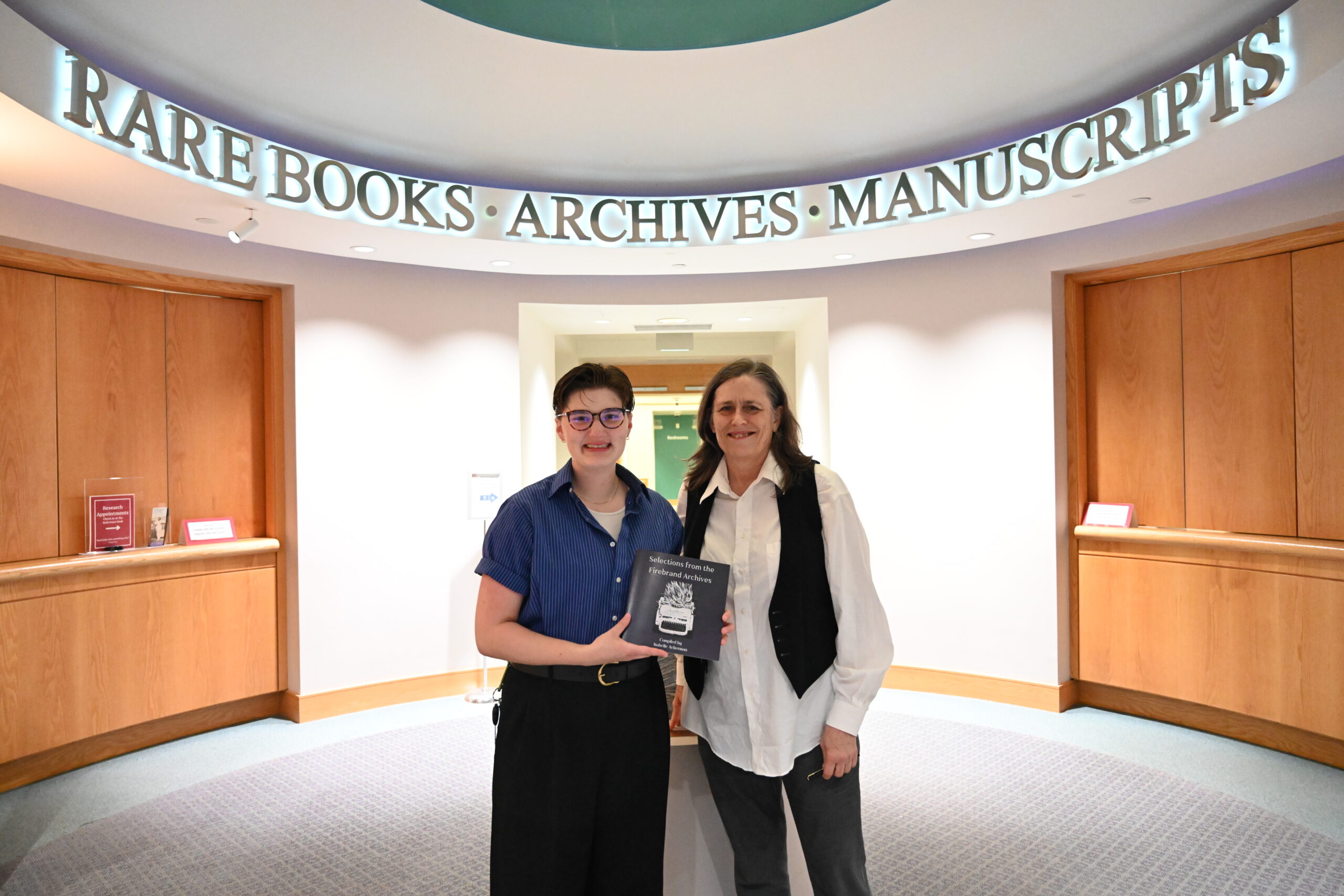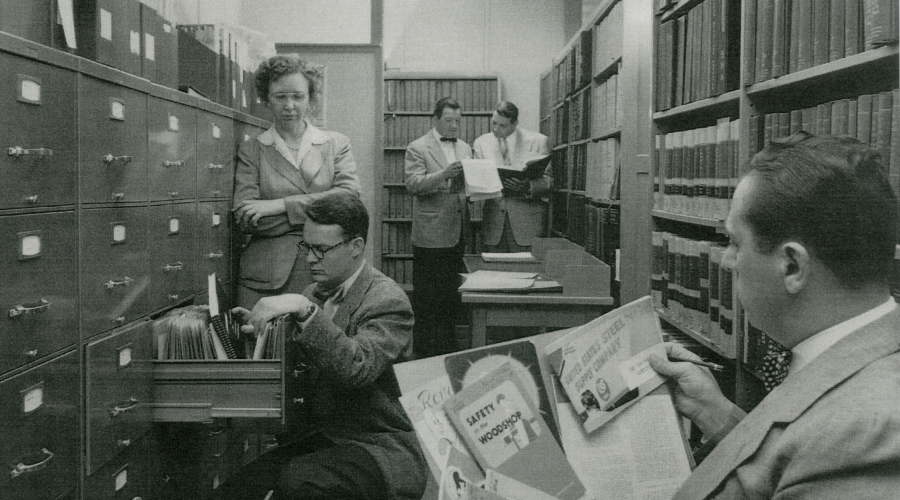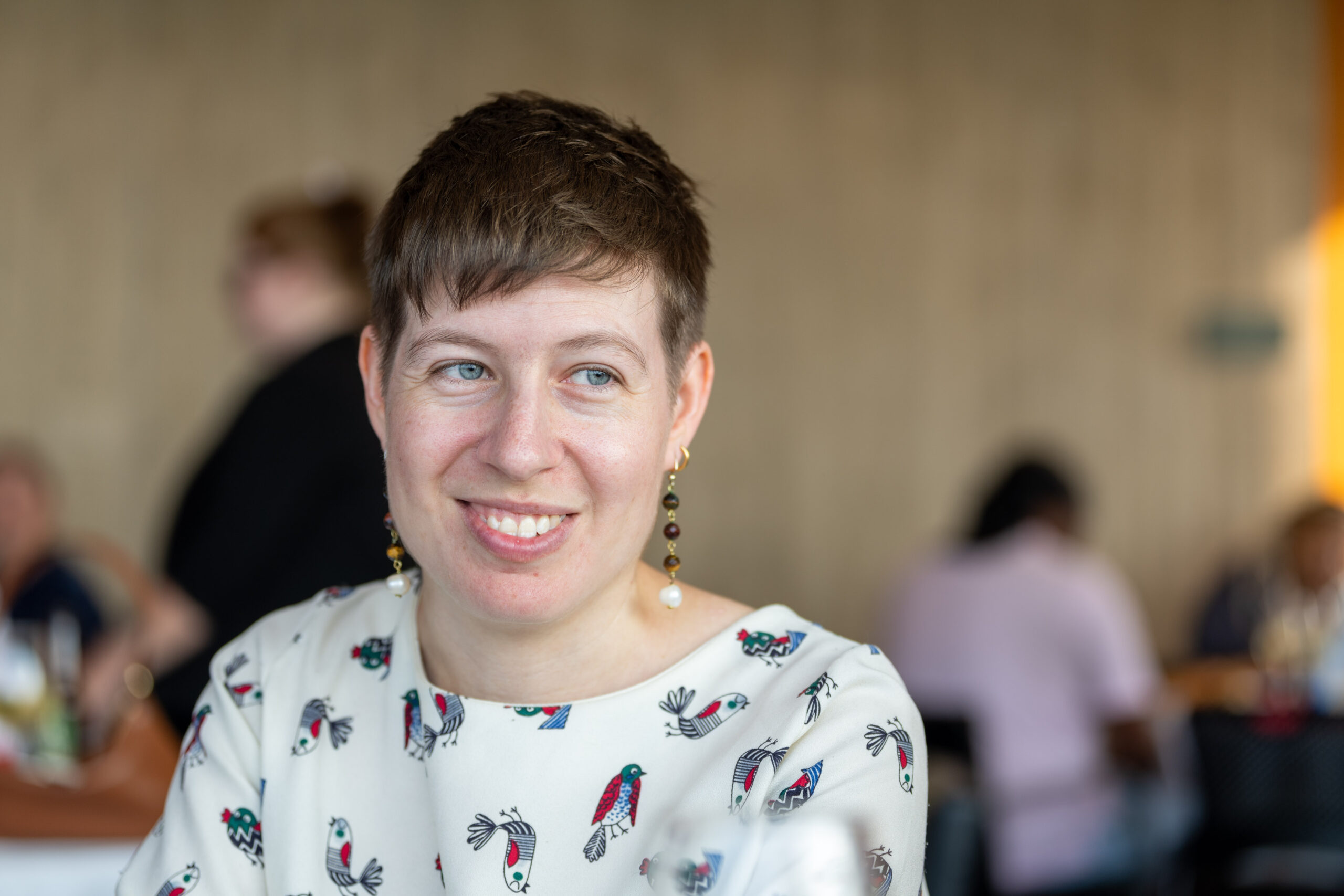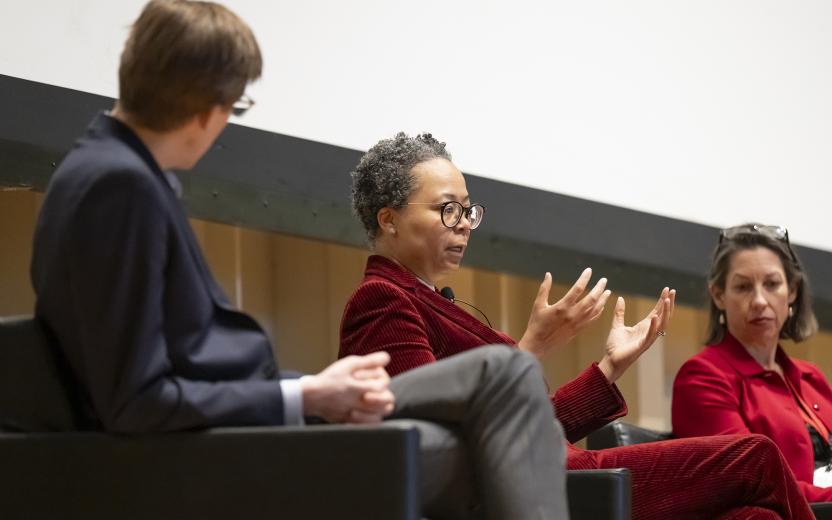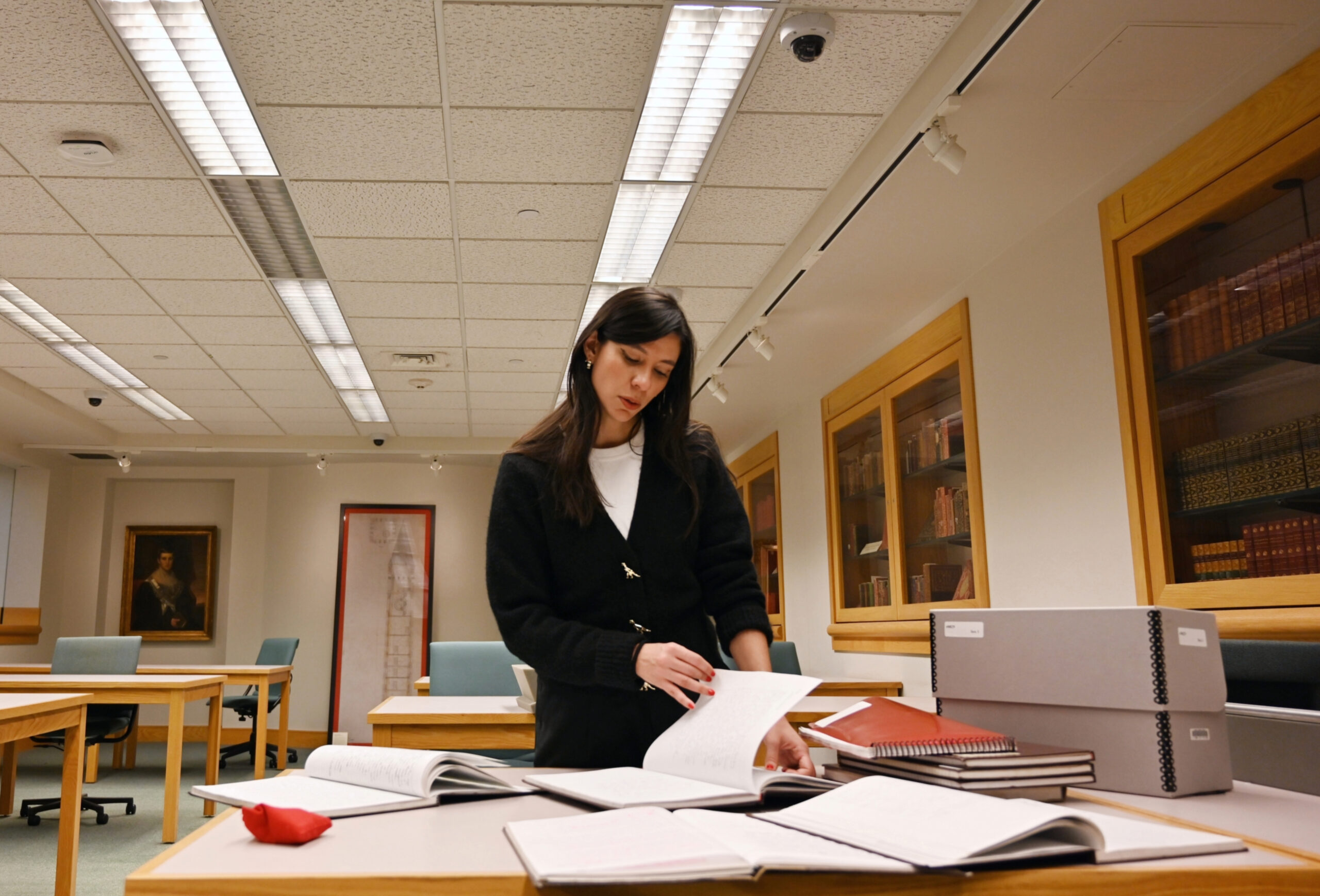
Kheel Center Research Archivist Steven Calco comes from a family of farmers, railroad and construction workers, and garment makers.
When he thinks of their experiences in Italy and America, he says, “I’m reminded of Dr. Martin Luther King, Jr.’s words ‘So often we overlook the work and the significance of those who are not in professional jobs [but] whenever you are engaged in work that serves humanity and is for the building of humanity, it has dignity, and it has worth.’”
The first member of his family to be born in the United States and to graduate from college, Calco joined the Kheel Center for Labor-Management Documentation & Archives four years ago for an opportunity that combined his passion for labor history and for archives.
“Coming to the ILR School to work as an archivist was a dream for me. I was working at Brooklyn College and Baruch College archives for over a decade and always had a special interest in labor history. Spending my free time organizing part-time librarians and archivists in CUNY, I went on to get a second masters’ degree in Labor Studies and joined the ILR School in 2018.”
“For the past four years, I’ve had the wonderful opportunity to work in an archive where I can use my expertise in labor history to help researchers navigate through our labor and management collections. Nothing is more exciting for me than connecting a Holocaust survivor and war orphan to photos and a video of her as a child attending a union convention in 1950 or discovering Ruth Bader Ginsburg letters to her former ILR professor who inspired her as an undergrad.”
The Kheel Center is part of Cornell University Library’s Catherwood Library, the most comprehensive resource on labor and employment in North America.
Union density has been in decline for decades, but Calco wants labor’s powerful legacy to be known. “My goal when working with students or creating exhibits at Cornell is to show how labor was a significant force in American history and highlight the experiences of underrepresented workers in the labor movement.
“My past exhibits focused on Dr. Martin Luther King Jr.’s significant and often overlooked role in the labor movement from the archives of his favorite union, Local 1199, and showcase the experiences of Black and women railroad workers during the early twentieth century. My goal is to highlight hidden labor history and make it more accessible to students at all levels of study at Cornell.”
Calco, whose family history was captured in an “Ithaca Times” story by writer Marjorie Z. Olds, Law ’76, also hopes to encourage undergraduate research at Cornell.
“Being exposed to primary sources of student protests in the 1960s at Brooklyn College archives as an undergraduate shaped my academic and professional career path. My goal with promoting our undergraduate research awards or travel grants is to make archival research more accessible to undergraduates and expose them to primary source research early in their careers with hopes to inspire the next generation of archivists or labor/management historians.”
“To document today’s labor unrest and show how workers have been impacted by the global pandemic, we’ve created a Work and COVID-19 web archive, preserving websites documenting the challenges faced from more than 600 unions, governments, nonprofits and other organizations during the pandemic,” Calco said.
The Kheel Center, working with library colleagues, is also preserving the websites of Police Unions and Police Associations, amid national conversations about police reform. “As archivists, it’s important to preserve the past and also think about the research needs of future scholars. Preserving ephemeral websites creates a curated visual and informational archive for future researchers interested in the world of work during a pandemic,” he said.
The history of labor unions and management has been preserved at the Kheel Center to provide a balanced perspective for the historical record, Calco said. “We have become the premier labor/management research institution in the country and will continue to collect in areas that strengthen the mission of the ILR School.”

